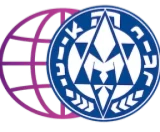Alex Bitterman, Europe & North America Department Director
“Then you shall succeed if you observantly carry out the laws and the rules that Hashem charged Moses to lay upon Israel. Be strong and of good courage; do not be afraid or dismayed.”
– Chronicles I, 22:13
With these words, King David commands his son and successor, Solomon, to build the Temple in Jerusalem. A house that will not only symbolize the culmination of the worship of G-d but will be a house that will unite all the tribes of Israel. Interestingly, David uses the words “be strong and courageous“, the same words that Moses said to Joshua ben Nun when he entered the Land of Israel when he was assigned the fateful task of bringing the people of Israel into the Promised Land. Also, the same words that we use as the main salute in Hanoar Hatzioni. Words that symbolize courage and bravery, but also faith in the righteousness of our path.
Despite King Solomon’s task and intention, of building the Temple, the people were unable to remain united. Soon, the united Kingdom of Israel split into Judah and Israel, over the years the rivalry increased, and the fate of history resulted in the erasure of the Kingdom of Israel, and the destruction of the Temple in Jerusalem years later.
It’s hard not to think about that story these days. Complex days, are very complex, for Israeli society. In recent years we have witnessed a growing division in society, in many areas, political, religious, and cultural. And in the last two months, this situation reached its peak. We will not go into the discussion about judicial reform and its purpose, but it is worth stopping for a moment and thinking deeply about its consequences, regardless of whether it is intentional or not. The bitter reality is a situation of going to extremes, not willing to have a real conversation, not accepting the other, and the constant seclusion of everyone in their sector.
This year, we celebrate 75 years of independence for the State of Israel, the fulfillment of the Zionist dream, and the product of the great efforts of generations of pioneers, statesmen, and practical people. A country whose foundation is Jewish independence, which places Jewish life as a norm at the center, on the one hand, and the values of democracy on the other. A country that managed to develop unusually, against all odds and threats, and is a light to the nations in many fields. It is very horrifying to think and remember that every time in history that we gained independence as a nation, in the output of the united Kingdom of Israel, and in the Hasmonean era, we did not last more than about 70 years…
No, I don’t want to sound pessimistic. We, as professionals of education and practice, who believe deeply in our right to an independent and reformed country, must not be pessimistic. Concerned, but solutions and ways must be found to fix it.
Very soon I will receive the task of leading the worldwide Hanoar Hatzioni movement, a great privilege given to me, after many years of activity in it. Facing the entrance to this new role, the question in my mind is “What is the compass?”, where is the movement headed? And the same question is asked about Israeli society and the entire people of Israel. The question must NOT be “where are we going”, but “where are we aiming“, how will we as a society decide together on the unifying values, on solid foundations, on a conciliatory culture, and in short, on a common destiny.
In our little “piece of heaven”, I choose education as an alternative, creating educational opportunities that will bring people closer, putting the painful issues on the table and talking about them, getting to know each other with tolerance, and understanding that the Zionist vision cannot be realized when we are not together.
In the spirit of these days, Pesach, the holiday of freedom, in which we celebrate our becoming a people, we must remember our past, and especially our vision as a free people in the Land of Israel (Eretz Zion ve Yerushalayim).
I want to conclude with words taken from the vision of the movement, as it appears in the Darkenu document. There is no better way to succinctly describe our hope for these complex days.
“We encourage our chaverim to actively participate in the process of ensuring the continuity of our people, while enriching the Jewish, democratic, and pluralist aspects of our state, as the foundation for the formation of an exemplary society.”











